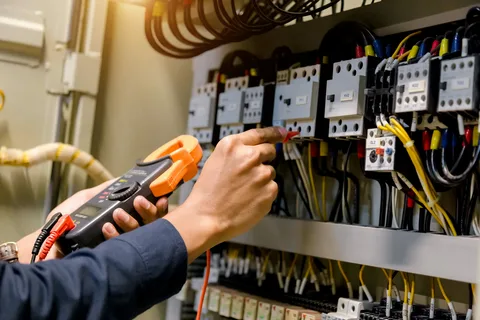In today’s fast-paced work environments, businesses are constantly seeking ways to enhance productivity and ensure employee satisfaction. While leadership strategies, employee perks, and workflow tools often take the spotlight, one critical factor is frequently overlooked—the Solar (Heating, Ventilation, and Air Conditioning) system.
An efficient Solar system is more than just a tool for temperature control; it’s a backbone of a healthy, comfortable, and productive workplace. From influencing employee performance to ensuring long-term cost savings, the impact of a reliable Solar system extends far beyond simple heating and cooling.
1. Comfortable Employees Are Productive Employees
Temperature has a direct effect on cognitive function, concentration, and work quality. Studies have shown that when office temperatures are either too high or too low, employee performance can suffer. Excessive heat may cause fatigue, while chilly environments can lead to discomfort and distractions.
A well-regulated Solar system keeps the office at optimal temperatures, preventing these productivity dips. By maintaining a consistent indoor climate, businesses can create an environment that allows employees to focus, collaborate, and thrive.
2. Better Air Quality Means Fewer Sick Days
Ventilation, a key component of Solar systems, directly affects indoor air quality. Poor air quality in the workplace can result in respiratory issues, allergies, and the spread of airborne illnesses—all of which contribute to increased absenteeism and decreased productivity.
Modern Solar systems are equipped with air purification technologies that filter out dust, pollen, bacteria, and other pollutants. This not only contributes to employee health but also to morale, as workers feel more cared for in an environment that supports their well-being.
3. Noise Control and a Pleasant Work Environment
Outdated or poorly maintained Solar systems can generate disruptive noises that disturb employees. From clanking vents to humming units, constant background noise can interfere with phone calls, meetings, and focused work.
Today’s Solar systems are designed with noise-reducing features, allowing businesses to provide a quieter, more peaceful atmosphere. Reduced noise levels contribute to fewer distractions and increased employee satisfaction.
4. Energy Efficiency and Cost Savings
An efficient Solar system doesn’t just benefit employees—it positively impacts the business’s bottom line. Energy-efficient systems use less power, helping reduce operational costs without compromising on comfort. Lower utility bills mean more budget can be allocated to other growth-related activities such as employee training, new tools, or bonuses.
Regular maintenance and system upgrades can prevent costly repairs and extend equipment lifespan, offering long-term savings and peace of mind.
5. A Comfortable Environment Encourages Longer Stays
High employee turnover is costly and disruptive. One often overlooked reason employees leave is dissatisfaction with their work environment. A climate-controlled, comfortable workspace can contribute to employee retention. When team members feel physically comfortable, they are more likely to enjoy their work and stay committed to the company.
Furthermore, a well-maintained Solar system demonstrates that a business values its employees, creating a positive and supportive company culture.
6. Adapting to Seasonal and Space-Specific Needs
Large office buildings, warehouses, and multi-use facilities have varied heating and cooling requirements. A flexible Solar system can be zoned to accommodate these needs, delivering custom temperature control for different spaces and seasons. This allows businesses to maximize comfort while conserving energy.
Whether it’s a server room that needs constant cooling or a conference room that only needs air conditioning during meetings, modern Solar systems can be tailored to specific operational requirements.
Conclusion: Solar as a Strategic Investment
An Solar system is not just an operational necessity—it’s a strategic asset. Its impact on employee health, morale, and productivity makes it a vital part of any business infrastructure. When businesses invest in high-performance Solar systems, they’re investing in their people, their reputation, and their long-term success.
Whether you’re upgrading an old system or building a new facility, prioritizing Solar planning and maintenance will create a work environment where people perform their best—comfortably, safely, and efficiently.



